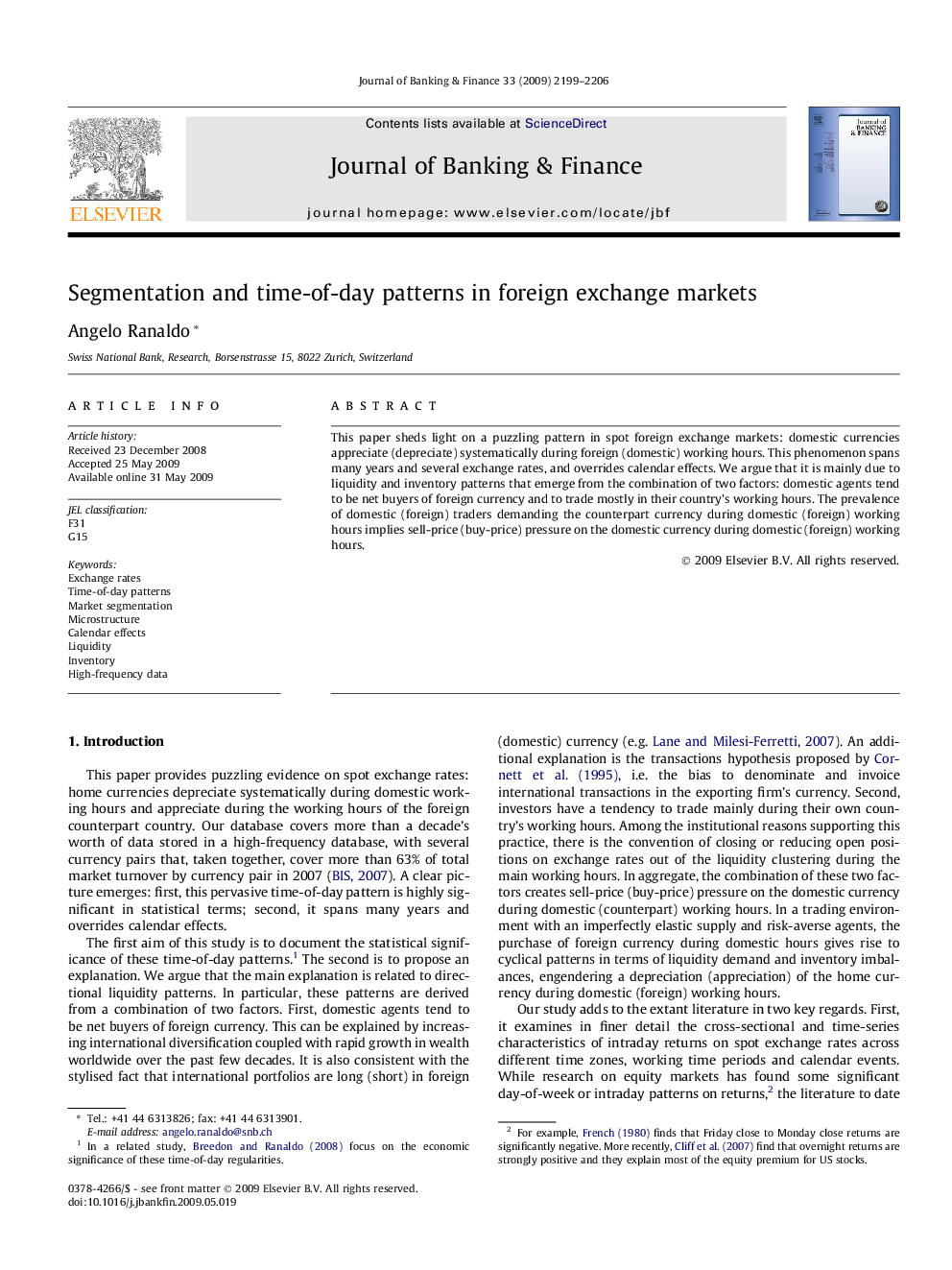| Article ID | Journal | Published Year | Pages | File Type |
|---|---|---|---|---|
| 5090353 | Journal of Banking & Finance | 2009 | 8 Pages |
Abstract
This paper sheds light on a puzzling pattern in spot foreign exchange markets: domestic currencies appreciate (depreciate) systematically during foreign (domestic) working hours. This phenomenon spans many years and several exchange rates, and overrides calendar effects. We argue that it is mainly due to liquidity and inventory patterns that emerge from the combination of two factors: domestic agents tend to be net buyers of foreign currency and to trade mostly in their country's working hours. The prevalence of domestic (foreign) traders demanding the counterpart currency during domestic (foreign) working hours implies sell-price (buy-price) pressure on the domestic currency during domestic (foreign) working hours.
Keywords
Related Topics
Social Sciences and Humanities
Economics, Econometrics and Finance
Economics and Econometrics
Authors
Angelo Ranaldo,
